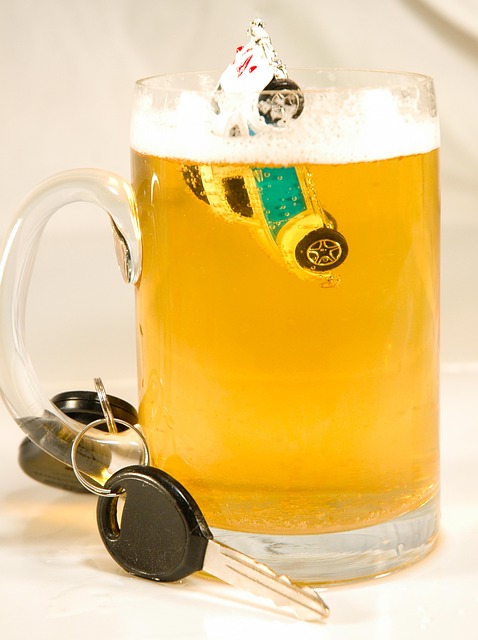DUI convictions severely restrict employment opportunities for high-risk reoffenders due to safety concerns and societal stigma. Limited job options lead to economic strain and higher reoffending risks. Efforts to break the cycle focus on rehabilitation, job training, and supportive initiatives, offering alternative pathways to stable futures and reducing DUI rates. Tailored programs addressing discrimination and empowering ex-offenders through education and skill development are key to disrupting harmful cycles.
High-risk reoffenders often face an uphill battle to break free from the cycle of crime. This article explores the complex issue of former offenders struggling with employment, a significant consequence of DUIs and other high-risk offenses. We delve into the barriers they encounter, from legal restrictions to societal stigma, impacting their career prospects. Additionally, we highlight supportive programs aiming to provide second chances, along with strategies to empower reoffenders in their journey towards positive change and successful reintegration.
- Understanding DUI's and Employment Barriers
- The Impact on Career Paths and Opportunities
- Social Stigma: Challenges Beyond Legal Consequences
- Supportive Programs for Second Chances
- Strategies to Break the Reoffender Cycle
Understanding DUI's and Employment Barriers

DUI’s (Drunk Driving) have a profound impact on employment opportunities for high-risk reoffenders. In many jurisdictions, a conviction for DUI can result in automatic barriers to certain types of work, especially those involving public safety or heavy machinery operation. These restrictions are put in place due to the heightened risk associated with individuals who have previously engaged in impaired driving.
Employment is a crucial aspect in breaking the cycle of reoffending. It provides structure, purpose, and financial stability, all of which can help deter recidivism. However, for those with DUI’s on their record, finding stable employment can be challenging. This often leads to limited options, increased economic strain, and higher chances of revisiting past behaviors due to the stress and desperation that can accompany unemployment or underemployment.
The Impact on Career Paths and Opportunities

High-risk reoffenders, particularly those with a history of DUI (driving under the influence), often face significant challenges in navigating career paths and securing employment opportunities. The DUI’s impact on employment is profound, as many employers avoid hiring individuals with such criminal records due to concerns about liability and public safety. This stigma can lead to limited job prospects and confined career options for ex-offenders.
As a result, former DUI offenders might find themselves stuck in low-wage jobs or informal economies, which hinders their ability to reintegrate into society and break the cycle of reoffending. The social and economic consequences are far-reaching, as stable employment is crucial for personal growth, community involvement, and preventing future criminal behavior. Efforts to address this issue often involve rehabilitation programs, job training, and supportive employment initiatives designed to help high-risk individuals turn their lives around and gain access to fulfilling career opportunities.
Social Stigma: Challenges Beyond Legal Consequences

The social stigma attached to high-risk reoffenders, especially those with a history of DUI (Driving Under the Influence), presents significant challenges beyond legal consequences. This stigma often follows them into their job search, as many employers are reluctant to hire individuals with such a criminal record. The impact of DUI’s on employment prospects is profound, creating a vicious cycle where limited job opportunities lead to higher rates of reoffending.
This double punishment—legal and social— exacerbates the difficulties faced by ex-offenders attempting to reintegrate into society. The stigma can extend beyond employment, affecting housing, education, and community acceptance. As such, addressing these societal barriers is crucial in helping high-risk reoffenders break free from the cycle of crime and find sustainable paths forward.
Supportive Programs for Second Chances

Many high-risk reoffenders struggle with finding and maintaining employment, often due to their criminal history and the lasting impact of offenses like DUI (Driving Under the Influence). This can create a vicious cycle where lack of job opportunities leads to financial instability, which in turn increases the risk of future criminal behavior.
However, various supportive programs aimed at second chances are helping to break this cycle. These initiatives focus on providing reoffenders with skills training, vocational education, and mentorship to enhance their employability. By addressing the root causes of recidivism and offering alternative pathways, these programs not only support individuals in finding work but also contribute to reduced DUI rates and a safer society.
Strategies to Break the Reoffender Cycle

Breaking the cycle of reoffending is a complex task, but with the right strategies, it’s achievable. For high-risk individuals, particularly those struggling with DUI-related issues, employment plays a pivotal role in rehabilitation. Providing structured environments and skill-building opportunities can significantly reduce recidivism rates. One effective approach is to offer specialized job training programs tailored for ex-offenders, focusing on industries that are less likely to conduct background checks or have strict policies against hiring those with criminal records.
Additionally, implementing support systems within the workplace, such as mentorship programs and employee assistance programs, can foster a sense of community and accountability. Encouraging employers to consider an individual’s potential rather than their past mistakes is crucial. Addressing DUI’s impact on employment through education, training, and supportive networks can empower former offenders to turn their lives around, gaining stability and reducing the likelihood of reoffending.
Breaking the cycle of reoffending is a multifaceted challenge, but with understanding, support, and strategies tailored to address barriers like DUI’s impact on employment, it’s possible for high-risk individuals to turn their lives around. By recognizing the social stigma and legal consequences that follow, we can implement more effective programs that offer second chances, ultimately fostering positive change in our communities.






